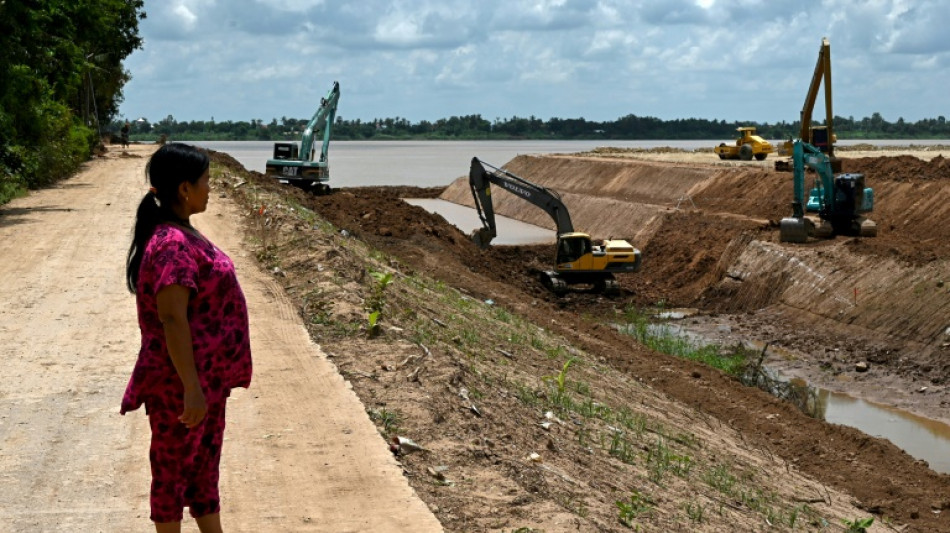

'I feel empty': Cambodians on canal route await fate
Food stand owner Dem Mech wells up as he sits in the yard of the home he will lose if Cambodia proceeds with a massive new canal running from the Mekong river to the sea.
"I won't challenge the government, but what I want is decent compensation," the wiry 57-year-old told AFP, seated in the shade of the house he shares with eight relatives.
"We don't have any official information. We have only heard about it from social media."
Mech is one of thousands of Cambodians living along the projected route of the $1.7 billion Funan Techo canal -- an ambitious infrastructure project the government says will offer vast economic benefits.
The waterway will run 180 kilometres (110 miles) from the Mekong to the Gulf of Thailand, travelling part of the way along the Bassac river.
It will offer an alternative for container ships that currently cross into Vietnam before heading to the sea, and allow Cambodia to keep transport revenue in-country.
The government plans riverside economic zones along the route that it says could create tens of thousands of jobs.
That could be a key boost for an economy struggling to recover its pre-pandemic growth rate.
But it is little consolation to Mech.
"If the compensation is tiny, I will move out with tears," he said.
"There is nothing we can do but cry. The villagers cannot stand up against them."
His sentiments are echoed along the projected canal route, where the excavation rattles the homes of those who live there.
Many who spoke to AFP declined to be named for fear of official backlash.
- 'Equitable compensation' -
Lim Tong Eng's home abuts a channel leading from the Mekong that is already being widened.
On August 5, a groundbreaking ceremony will be held on the opposite bank, with the government urging temples to ring bells in celebration.
The 74-year-old retired farmer will not participate. He is still waiting to learn when he will have to leave and what compensation he might get for his home and farmland.
"From the time I was young until this age, this is all I have acquired. But now it is over," he told AFP.
Infrastructure projects the world over often involve expropriation, and Cambodia's Deputy Prime Minister Sun Chanthol has promised that "community voices will be heard and their welfare prioritised".
Writing in the Nikkei Asia in May, he promised "participatory planning and equitable compensation".
There are also signs that the project has support among at least part of the population, with analysts saying it is intended as a unifying national project that evokes Cambodia's historical standing in the region.
Rights activists however point to a pattern of expropriation for infrastructure projects that has left people struggling to relocate with minimal compensation.
Despite government promises, citizens have little recourse, said Am Sam Ath, operations director at rights group LICADHO.
While the constitution allows legal challenges, "in Cambodia, when it comes to courts, the lawsuits against authorities and the state, the possibility of winning is so minimal".
Some experts said the government may be delaying an announcement on compensation to stop speculative land purchases along the route.
But local residents say landlords nearby have already raised their prices, anticipating an influx of displaced buyers.
Sok Rom, a 56-year-old widow, said she struggles to sleep with worry about where she will go.
"I feel empty inside. We are losing the place where we lived in happiness."
F.Müller--BTB




